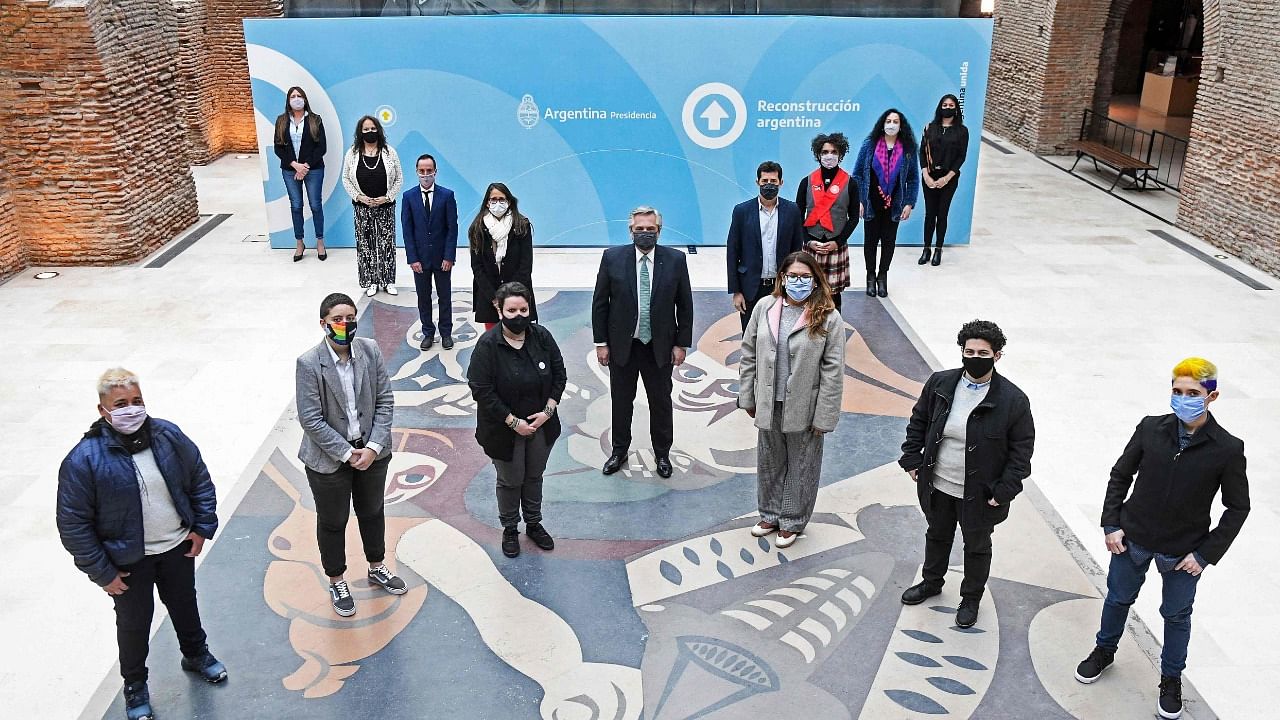
Argentina has become the first country in Latin America to officially recognise gender nonbinary people, who can now choose to have their gender marked as an X on their national identity documents and passports if they do not identify as either female or male.
The change, enacted by decree by President Alberto Fernández, is the latest example of how he has made it a priority to expand the rights of women and sexual minorities. It comes weeks after he signed into law a measure that sets aside 1 per cent of the country’s public-sector jobs for transgender individuals, which Congress approved in June.
“We have the need to expand our minds and realize that there are other ways to love and be loved and there are other identities besides the identity of man and the identity of woman,” Fernández said Wednesday in a ceremony where he presented the first three national identity documents with nonbinary markers. “And they must be respected.”
Argentina joins several other countries, including New Zealand, Canada and Australia, as well as several US states, that allow a nonbinary gender marker in identity documents.
One person who has announced plans to get a new nonbinary identity document is the president’s own 26-year-old child, a performer who goes by the name Dyhzy.
“I consider myself a nonbinary person,” Dyhzy said in a live video on Instagram.
Since taking office in December 2019, Fernández, a center-left leader, has made a broad effort to liberalize Argentina’s laws, with particular emphasis on gender equality and identity and sexual orientation. Late last year, Argentina made history by becoming the most populous country in Latin America to legalise abortion; it has also legalised marijuana cultivation for medicinal use.
The president has made a push to use more gender-neutral language in government communications as well. That is a challenge in Spanish, which treats every noun as either masculine or feminine and traditionally uses the male forms of plural nouns and adjectives to apply to mixed groups.
Fernández later noted that the nonbinary marker was not an ideal solution. He expressed hope that someday it may not be necessary and that everyone would be referred to in gender-neutral terms.